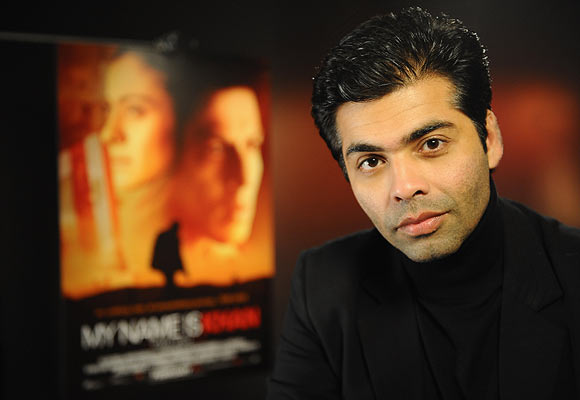
Making a list is a highly personal affair. No matter how objective we try to be, the heart always comes first. We have no choice but to look at greatness in the way it has most affected us.
Which is why when Raja Sen asked Karan Johar -- one of the four directors of this week's release, Bombay Talkies, which celebrates 100 years of Indian cinema -- about the 10 films he feels have changed Bollywood forever, he felt he just had to name 11.
Karan, while choosing his list, said he would never be able to make films like these. "It's that feeling," he said, "of being slightly inferior that makes you love these films all the more."
As part of our celebration of Indian cinema's 100th anniversary, we introduce a new series where we ask 100 movie professionals to share their views about Indian cinema.
We start with Karan Johar, who shares his pick of the Films That Changed Bollywood Forever. Take a look:
Kaagaz Ke Phool
My mother was completely crazy about old Hindi film songs, and so I watched Kaagaz Ke Phool very young. I didn't have an understanding of the subject of the greatness but I was still quite absorbed by it. And then as I've watched it over and over, I've grown closer to the film.
The genuine fear of every filmmaker is to be isolated, to be left alone with our thoughts.
It's a beautifully tragic film. And the way it's shot -- I wish those people were still around so I could speak to them just to understand how they composed those shots.

Pyaasa, again, is beautifully crafted. And the music is just eternal.
It's impossible to mention Kaagaz Ke Phool and not Pyaasa, especially for me, since both these Guru Dutt films matter very deeply to me, and my understanding of why I love the movies so much.

Mother India is an incredible film. It's feminist, it's strong, it's brave and it's brilliant.
The power of that end, the mother killing her son, was just overwhelming. And the way it was shot and executed.
It is a milestone film in terms of actors performances -- particularly Nargisji, naturally -- but it was also a very strongly Indian film, very representative of our country and the stories we wanted to tell. It was very efficiently portrayed melodrama.
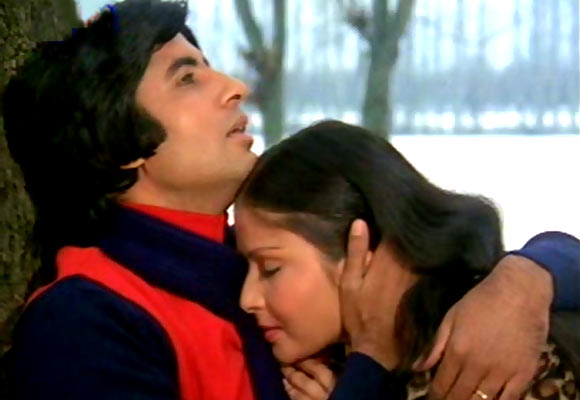
Watching Kabhi Kabhie from the 1970s was one of the most glamorous experiences. Sheer glamour. I discovered poetry and music. It was also the first quintessentially Yash Chopra film.
Early in his career he'd made some great cinema -- strong, socially relevant cinema -- but Kabhi Kabhie is what we love Yash Chopra for. It was the flag-off film for that cinematic celebration.
The scene where Raakhi, Amitabh Bachchan and Shashi Kapoor stand in the same frame is stunning, the unsaidness of that scene.
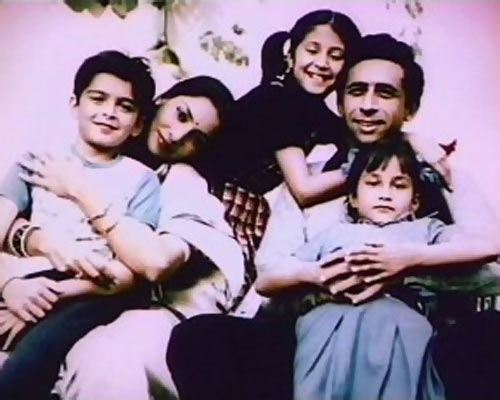
Masoom is an amazing film simply because it looked like Shekhar Kapur just trained a camera on a real-life situation. The ramifications of the extra-marital affair, the husband-wife dynamic, it was all handled perfectly.
The narrative was dramatic but executed with so much dignity and grace, volatile but never so jarring that it felt unreal. It was genius.
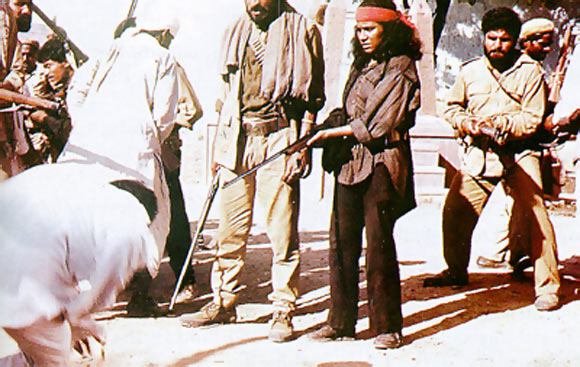
Bandit Queen has to be on my list because it is, without question, the most uncomfortable viewing I've ever had at the movies in India. It was my raw instinct to cover my face while I was watching that film.
It's a film that leaves you speechless, makes you want to leave the theatre and go sit alone in a room somewhere. It's a sock to the stomach, a film that punches you in every possible part of the body.

Mani Ratnam's Nayakan is a great film, and he's the only filmmaker who can tell a story with his craft. His craft is incredible and he's technically such a pioneer in cinema, but he uses craft so effortlessly that its never showy, it's just in service of his storytelling.
And Kamal Haasan in beyond legendary in that film.
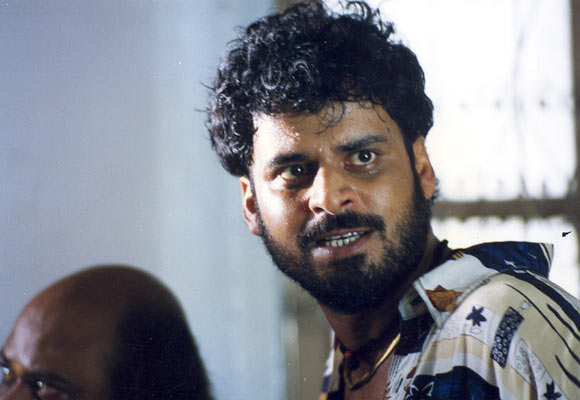
Satya is quite simply the mother of all underworld films. It displays the genius of Ram Gopal Varma while creating a world so many films spinoff from even today.
I remember when Agneepath released and was called ahead of its time and did some aspects of the underworld very well -- but what it did not do is connect to the audience in the way Satya did.
Brilliance.
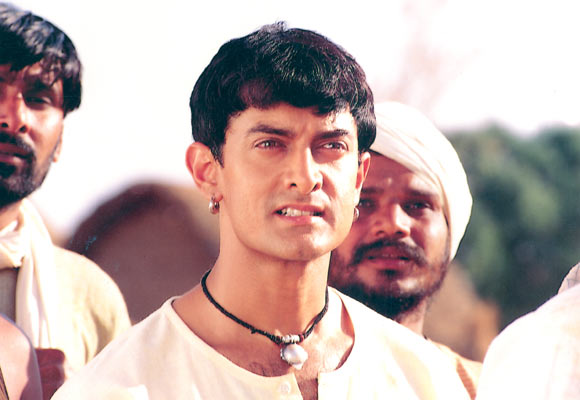
Lagaan has to be on the list.
In 2000-2001, Lagaan and Dil Chahta Hai together redefined modern cinema. And Lagaan must be celebrated because it blurs the line between parallel and mainstream cinema. It's brilliant.
The second half of the film turns the theatre into a stadium. Suddenly, people were clapping and hooting and cheering, and we all forgot that we were watching a movie.
India has two obsessions, cricket and cinema, and this is the only film that truly blended the two.
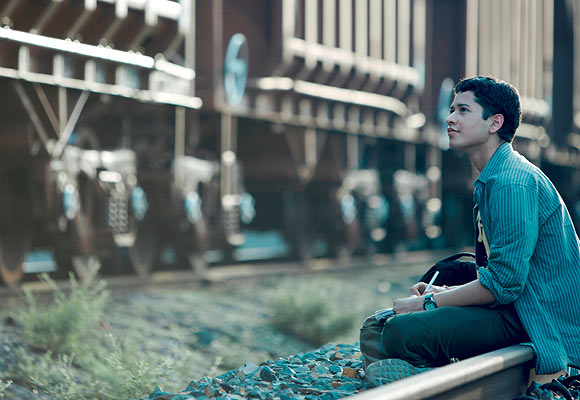
Udaan just blew my mind.
It's the tiniest film with the strongest heart. I never had a conflict with my father but I've heard of awful father-son conflicts, possibly the bane of most families in this country.
I think director Vikramaditya Motwane touched upon that so perfectly and it was really the first actual coming-of-age film -- or at least the best coming-of-age film -- I've seen.
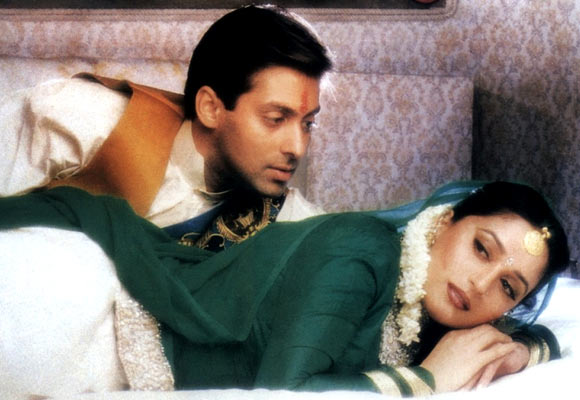
I have to add an eleventh film because this is a highly personal list.
Hum Aapke Hain Koun...!, because this was the reason I decided to become a filmmaker.
In 1994, when I walked out of that theatre I turned to Aditya Chopra and told him I wanted to be a director.
The way Sooraj Barjatya celebrated family was amazing. And I think it's India's first true-blue musical. I know, I know, we've been making musicals forever but this was one where songs didn't interrupt the narrative but, in fact, situations were sung.
Growing up in South Bombay, I was surrounded by people who bashed it, calling it a shaadi video, the longest film, but I didn't care. I saw that film thrice in the same week and it's integral to me, personally.